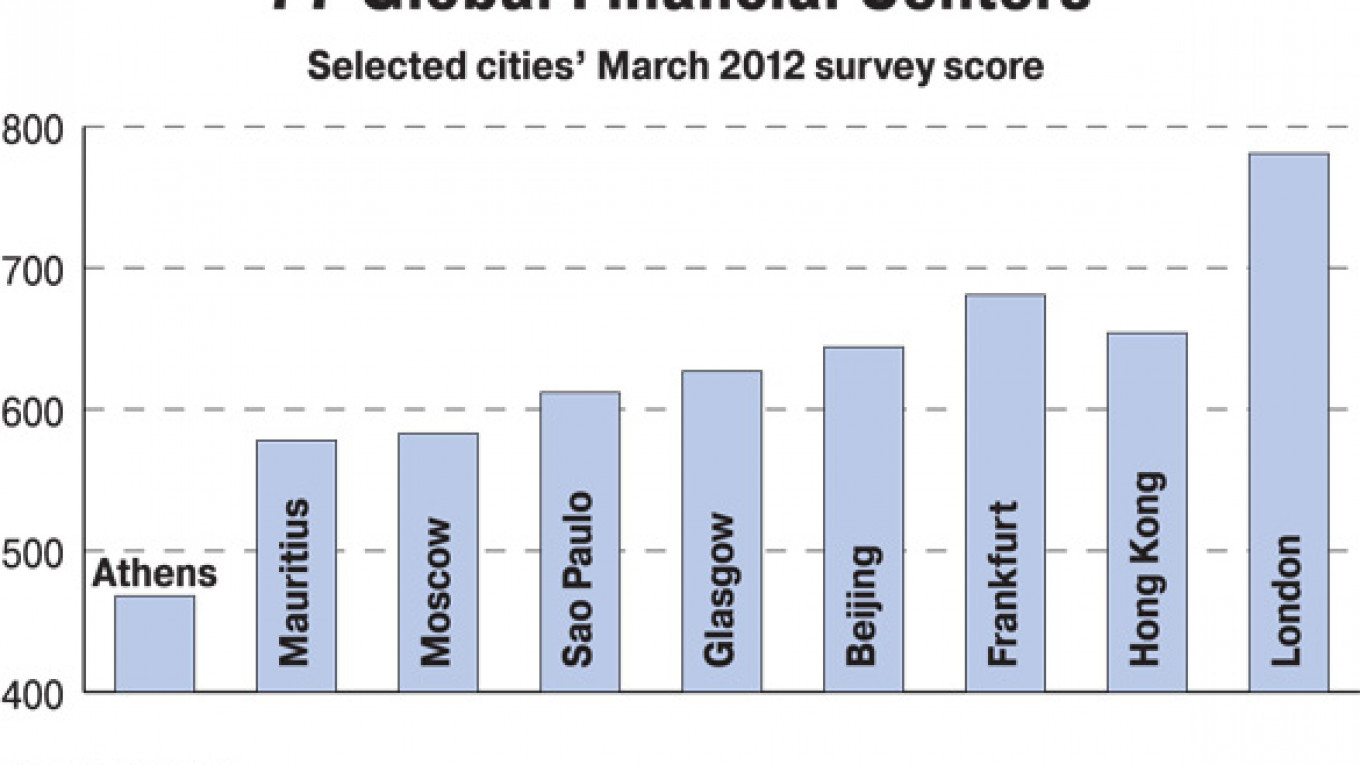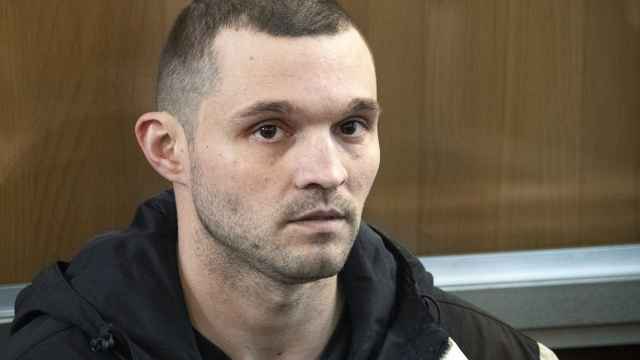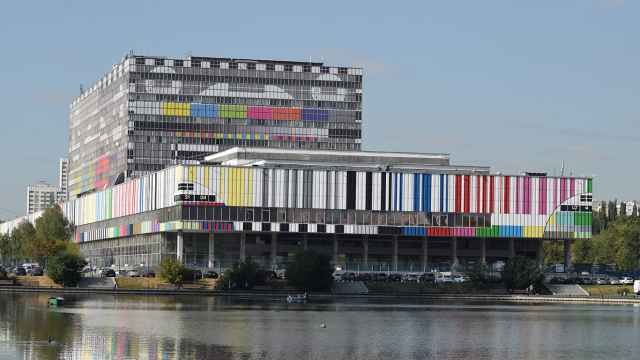President Dmitry Medvedev's flagship project to turn Moscow into an international financial center suffered a double blow Wednesday as global surveys returned negative results on the city.
Despite the high-profile campaign to reforge Russia's financial architecture and make the capital a haven for foreign investors, Moscow slipped four places in the London-based think tank Z/Yen's biannual report on global financial centers.
The city was ranked the 65th most attractive financial center in the world out of 77 surveyed — below urban centers little known for their prowess in the field including Glasgow, Shenzhen, Calgary and Warsaw.
The small island of Mauritius, 870 kilometers east of Madagascar in the middle of the Indian Ocean, was in 66th place and snapping at Moscow's heels.
Though the aggregate score collected by the Russian capital has increased in Z/Yen's model, which uses a survey of industry players as well as 14 "competitive factors" to rate cities, it has continually struggled to climb in the rankings.
Moscow was placed 45th out of 46 cities in Z/Yen's first such survey four years ago. In September 2009, it was put 67th out of 75, and in September last year, it was 61st out of 75.
Its static position sits in stark contrast with the political rhetoric around the Moscow as an International Financial Center initiative, or MIFC, that Medvedev launched on the eve of the financial crisis in 2008 and has continued to promote heavily.
"The policy makers … are putting an awful lot of effort into [MIFC]," said Mark Yeandle, one of the report's authors, "but it hasn't really started showing in the numbers yet."
Z/Yen's survey released late Tuesday was not the only recent report to suggest that Moscow's future as a global leader was in doubt.
Heavyweight investors expect Moscow to decline as an urban powerhouse, Citibank and Knight Frank's joint annual Wealth Report published Wednesday said.
Drawing on data provided by 5,000 individuals across the world each with a net worth of more than $100 million, the survey ranked Moscow as the 11th most important global city today. In 10 years time, however, it will slip to 14th place, behind Sao Paulo, Miami and Rome.
While Citibank and Knight Frank predicted a 76 percent rise in the number of Russians with fortunes of $100 million and upward over the next five years, Moscow was not among the top 20 world cities ranked according to the speed of their growth in importance.
But there is some skepticism about the reliability of such reports as an indicator of success.
Selim Elgen, head of Citi's private banking division in Europe, the Middle East and Africa, warned that the results of Citibank's report were subjective and have as much to do with perception as reality.
Z/Yen's Yeandle said Moscow's fall in the rankings was "insignificant" and that he expected it to climb in the future. "The change is so small that I wouldn't read too much into it," he said.
"MIFC is a long-term project and — in that context — the current rankings that place Moscow very low down the list should be viewed as an opportunity to build and improve," said Daniel Freidman, the head of corporate finance at ING Bank in Russia.
The greatest successes in the MIFC initiative have come in the area of financial infrastructure. Russia's two biggest exchanges — RTS and MICEX — are in the process of merging and a central depositary, a key demand of investors, is on track to be fully operational by the end of this year.
"Great improvements have been made," ING Bank's Freidman said. "But clearly this is an ongoing process and further progress is necessary."
Gains are much less obvious in the other two areas vital for transforming Moscow: infrastructure and overall investment climate.
The city's traffic is the key barrier to it becoming a global hub, the head of U.S. investment-banking giant Goldman Sachs Lloyd Blankfein told Medvedev during a visit to the city last year.
President-elect Vladimir Putin has pledged to take steps to improve the country's attractiveness for foreign investors, but he has negative perceptions as well as concrete problems to tackle.
"People are very worried about the rule of law and corruption," Z/Yen's Yeandle said. "And until that improves it is unlikely Moscow will shoot up in the rankings."
A Message from The Moscow Times:
Dear readers,
We are facing unprecedented challenges. Russia's Prosecutor General's Office has designated The Moscow Times as an "undesirable" organization, criminalizing our work and putting our staff at risk of prosecution. This follows our earlier unjust labeling as a "foreign agent."
These actions are direct attempts to silence independent journalism in Russia. The authorities claim our work "discredits the decisions of the Russian leadership." We see things differently: we strive to provide accurate, unbiased reporting on Russia.
We, the journalists of The Moscow Times, refuse to be silenced. But to continue our work, we need your help.
Your support, no matter how small, makes a world of difference. If you can, please support us monthly starting from just $2. It's quick to set up, and every contribution makes a significant impact.
By supporting The Moscow Times, you're defending open, independent journalism in the face of repression. Thank you for standing with us.
Remind me later.







